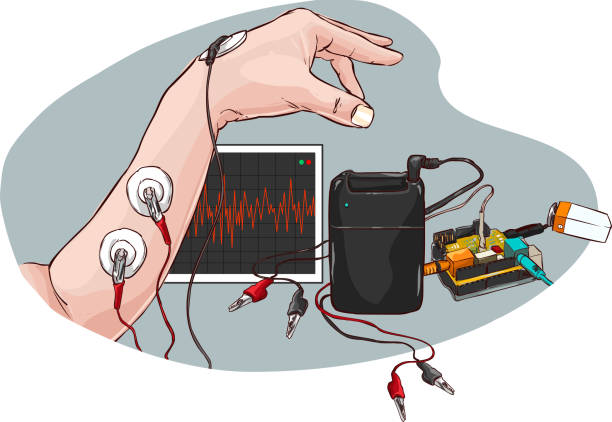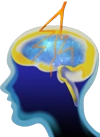EMG and NC study
EMG and NC Study
Electromyography (EMG) and nerve conduction velocity (NCV) are electrodiagnostic examinations that assess the electrical activity of muscles and nerves. These tests may be an essential for a spine patient. Aside from back or neck discomfort, some individuals with a spine condition report unexplained symptoms such as numbness and/or tingling sensations, muscular cramps, or weakening in an extremity (eg, one or both arms, legs).
For an EMG and NCV, your doctor may recommend you to a neurologist. Both tests are often conducted at the same appointment. An EMG and NCV may be used to determine the following:
- If the problem is with the muscles or nerves,
- To detect the cause of Nerve injury

What causes nerve damage?
Your neurologist will assess the findings of the test(s) and write a written report to your referring doctor whether the injured nerves are responding to therapy (if the patient is undergoing treatment).
Inform your doctor before undergoing an EMG or NCV if:
- You are taking blood thinners.
- You often take aspirin.
- Have a bleeding disorder
What Is Electromyography (EMG) and What to Expect?
EMG assesses electrical activity inside specific muscle fibers and analyses muscular response to nerve stimulation. This test may aid in distinguishing between a muscle issue and a nerve condition, allowing your doctor to make an accurate diagnosis.
A small needle electrode is placed through your skin into a particular muscle during an EMG. The electrical impulses are captured on an oscilloscope while you relax and contract the muscle. An oscilloscope is a device that shows electrical impulses in a wave-like form. The doctor may also listen to the findings via a microphone.
What Is Nerve Conduction Velocity (NCV) and What to Expect?
The speed at which an electrical impulse travels along a nerve is measured by NCV. Patch-like electrodes are put to your skin in many locations across the nerve to be evaluated during an NCV. To activate the nerve, low-level electricity is delivered via the electrodes. The quantity of electricity is comparable to a static electricity shock. The speed with which the electrical signal travels through the nerve is monitored and presented on a screen.
How to get Preparing for EMG or NCV?
- Avoid using skin lotion or cream on the areas that will be examined.
- You may be asked to sit or lie down throughout the exam.
What are the Risks and Discomfort associated with EMG and NCV?
- When the needle electrodes are inserted, you may experience pain.
- Following an EMG, the muscle(s) examined may feel painful, and you may have slight bleeding or swelling where the needle electrodes were placed.
- EMG risk There is a minor risk of infection in the area where the needle electrodes were placed.
What is the main use of EMG and NC study?
- NCV and EMG test is to Determine the Root Cause of Muscle and Nerve Pain.
- Electromyography (EMG) and nerve conduction velocity (NCV) measurements may assist your doctor incorrectly identifying muscle and/or nerve-related spine pain. Once a diagnosis has been determined, neurologists provide treatment for relieving pain and restoring its function.
For more information & consultation on EMG and NC study, Call our expert Dr. Amit Shah – Consultant Neurologist in Mumbai on 98195 61456 or Book an Appointment
